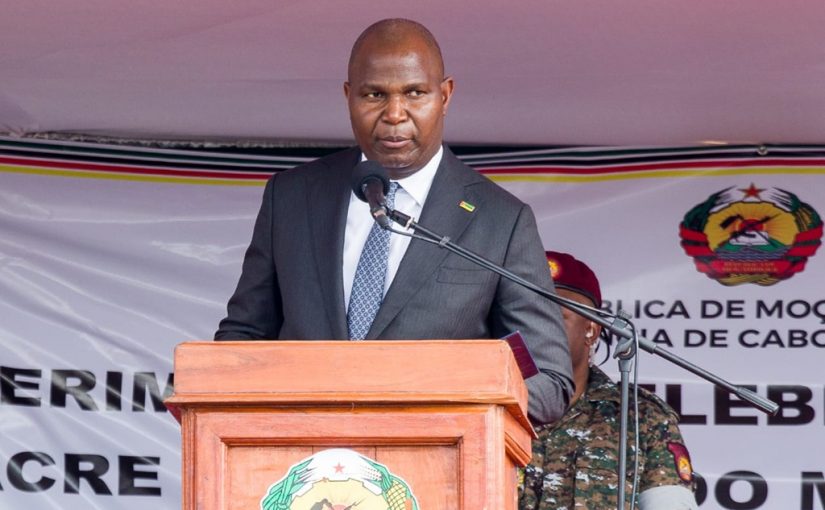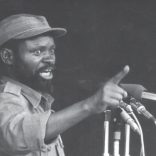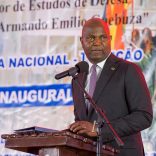Mozambique and Eswatini strengthen parliamentary cooperation
Mozambique: President rejects violence to solve conflict on anniversary of Mueda massacre

Photo: AIM
The Mozambican president on Monday called for dialogue and rejected violence in resolving any conflicts, marking the Mueda massacre, in which Portuguese forces fired on a “defenceless crowd” in Cabo Delgado, northern Mozambique.
“They came with words, not swords; they came with hope, not hatred, which certain people try to teach the Mozambican people.” This shows that the Mozambican people have always been a people of dialogue, never a people of violence and never a people of hatred between brothers, which some want to bring into our culture and into our hearts,” said Daniel Chapo, today marking the 65th anniversary of the Mueda Massacre.
The Mueda Massacre, which took place on June 16, 1960 in the district of Mueda, in Cabo Delgado, represents one of the last episodes of Mozambican resistance to Portuguese colonial rule before the start of the armed struggle for the country’s liberation on September 25, 1964, which culminated in Mozambique’s independence on June 25, 1975.
The Mozambican president, in marking the date, reminded Mozambicans of the desire for dialogue of those who were massacred in Mueda, calling for unity among all social classes around political dialogue aimed at ongoing reforms in the country.
“Dialogue, whenever possible, must always precede violence and never the other way around. We must never start with violence and then move on to dialogue, but rather dialogue must come first, because only dialogue can resolve our concerns,” said Chapo, indicating that it is the government’s desire to use dialogue to “build consensus, correct asymmetries and ensure that no citizen feels like a stranger in the land where they were born.”
“Where dialogue is ignored, frustration always grows, which is why we advocate dialogue. Where turmoil reigns, violence germinates; where violence reigns, peace dies,” added the Mozambican head of state.
The country’s president recalled the Mueda massacre as a milestone of courage in the struggle for independence, which was marked by negotiations with the colonial regime, pointing to the colonial violence of that date as an act that “exceeded the patience of the Mozambican people”.
“Colonialism responded with bullets in a brutal and premeditated act, the Portuguese colonial forces opened fire on a defenceless crowd whose only weapon was sand, mowing down dozens, perhaps hundreds of innocent lives,” said Chapo, noting that the current executive still believes in dialogue to end the conflicts in the country.
“Dialogue was his preferred solution, which is what we advocate 24 hours a day, Monday–Monday, throughout Mozambique (…) When the people of Mueda approached, they had no weapons, no words of violence, no violent actions, no hatred, and they had not destroyed anything in Mueda. They were only there to negotiate our freedom,” he said.
Mozambique experienced almost five months of social tension, with demonstrations, initially in protest against the election results of October 9, 2024 called by former presidential candidate Venâncio Mondlane, resulting in the death of 400 people in clashes between police and demonstrators, as well as destruction of property.
The Mozambican government confirmed at least 80 deaths, in addition to the destruction of 1,677 commercial establishments, 177 schools and 23 health facilities during the demonstrations.
On March 5, 2025 Mozambican parties with seats in parliament and in municipal and provincial assemblies signed a political commitment with the Mozambican president aimed at state reforms, which was subsequently passed into law by the Mozambican parliament.
On March 23, Mondlane and Chapo met for the first time and a commitment was also made to end post-election violence in the country. They met again on May 21 with an agenda to pacify the country.












Leave a Reply
Be the First to Comment!
You must be logged in to post a comment.
You must be logged in to post a comment.